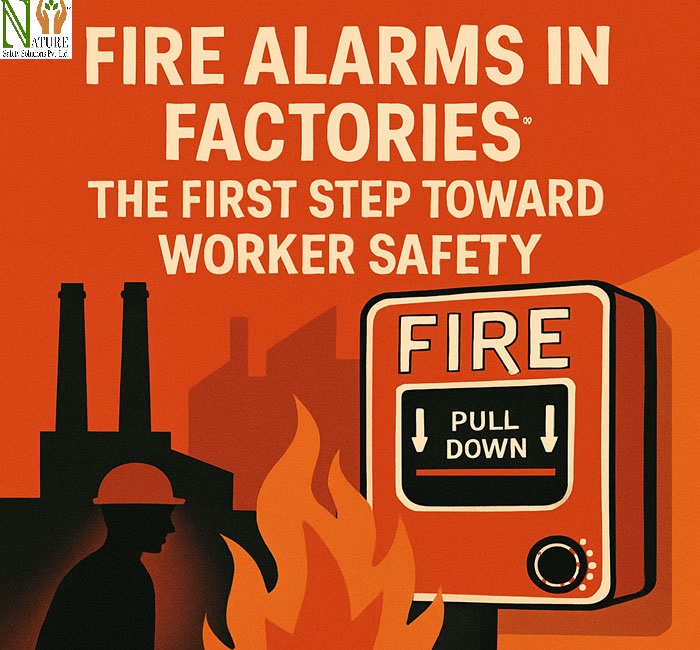Factories are places full of machines, workers, and non-stop activity. With so much going on, safety must always come first. One of the biggest dangers in any factory is fire. A small spark or short circuit can quickly grow into a major emergency.
That’s why fire alarms are so important. They may seem like a small part of the safety system, but in reality, they are often the first thing that saves lives. A fire alarm gives workers the warning they need to leave the building safely and quickly.

Understanding the Risk
Fires in factories can happen for many reasons. Electrical faults, overheating machines, oil or chemical spills, and human mistakes can all cause fire. Once a fire starts, it spreads fast. Thick smoke, heat, and panic can make it hard for people to escape.
That’s where early warning becomes important. The faster people know about the fire, the better their chances of staying safe. Fire alarms give this early warning. They alert everyone before the fire grows out of control.
How Fire Alarms Work
Fire alarms are made to detect danger quickly. Some alarms sense smoke in the air. Others react to heat or flames. There are also alarms that can be activated manually if a worker sees fire.
Once triggered, the alarm gives out a loud sound. Sometimes, there are flashing lights or even voice instructions. These signals tell workers to stop what they are doing and follow the emergency plan. That short moment of warning can save many lives.
Acting Fast Matters
When the alarm rings, every second is important. Workers must move quickly but calmly. A good fire alarm gives people time to think clearly and act the right way. Many factories also use systems that automatically inform local fire departments. Some alarms even shut down dangerous machines or open emergency doors.
This quick response can stop a small fire from turning into a big disaster. It also helps protect equipment, products, and the building itself.
Fire Safety Rules and Responsibility
In most countries, having a working fire alarm in factories is required by law. There are safety standards that all industrial sites must follow. These rules include installing alarms in the right places and making sure they are working at all times.
Factory owners and managers must test alarm systems regularly. They also need to keep records of inspections and maintenance. It’s not just about avoiding fines—it’s about protecting people.
Mistakes That Can Be Dangerous
Sadly, some factories don’t take fire alarms seriously. Alarms may be installed but not checked. Batteries may be dead. Devices may be covered with dust or blocked by equipment. These small issues can lead to serious problems during a real emergency.
Another common mistake is turning off alarms during noisy work hours. But doing this can delay response during an actual fire. Factories must treat alarms as a top priority, not a disturbance.
Importance of Worker Training
Even the best alarm system won’t help if workers don’t know what to do. Every worker should be trained to act fast when they hear the alarm. They should know where to exit, how to avoid panic, and where to gather outside the building.
Regular fire drills are important. These drills help workers practice safe evacuation. When a real emergency happens, trained workers are more likely to stay calm and follow the right steps.
Creating a Safer Work Culture
Fire alarms are part of a bigger picture. A safe factory is one where safety is part of daily life. Workers should report any safety issue they see, including damaged alarms or blocked exits. Managers should respond quickly and fix problems without delay.
Posters and signs showing emergency routes should be visible. Emergency exits should never be locked or blocked. And every new worker should receive fire safety training during their first days on the job.
When safety becomes a habit, everyone is more protected—even in the middle of an emergency.
Also read:-
